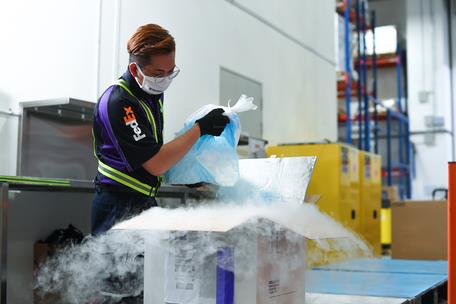FedEx said it is looking to exceed the amount of shipments it will be transporting for the holiday season this year compared to the level seen in 2019 before Covid-19 hit.
In a statement, the logistics behemoth also marked the first year anniversary of its first Covid-19 vaccine delivery which has led to the transport of approximately 14,000 COVID-19 related humanitarian relief shipments globally, including three FedEx charter flights carrying oxygen concentrators, and medical supplies to India.
"One year ago, FedEx Express delivered the first shipments of the COVID-19 vaccines to dosing centers in the United States. The day marked a turning point in global efforts to control the Covid-19 pandemic as transportation companies like FedEx, healthcare companies, and government officials coordinated the first shipments to begin vaccinating communities," it said.

The company said aside from moving vaccines, it has also continued to keep supply chains moving — delivering goods across the globe.
"FedEx will continue to deliver vaccines throughout another busy holiday season, in which FedEx expects to deliver 100 million more packages than the company delivered during the 2019 holiday season," the American logistics giant said.
Raj Subramaniam, president and COO of FedEx Corporation, noted that FedEx remains commited to moving these much-needed vaccines moving forward as the world continues its push to control the pandemic.
"We are immensely proud of the role we’ve played in helping deliver lifesaving Covid-19 vaccines throughout the US and around the world," Subramaniam said. "Over the last year, we’ve expanded our transportation of COVID-19 vaccines to more than 50 countries and territories around the world. We’re committed to helping to end to this pandemic and building for a better future for all."
FedEx said its investments in innovative technologies and expansion of its cold-chain storage facilities before the pandemic has helped support vaccine shipments and its other healthcare business.